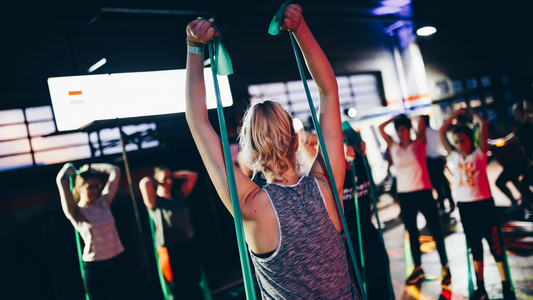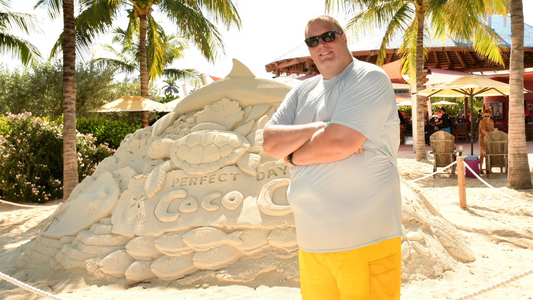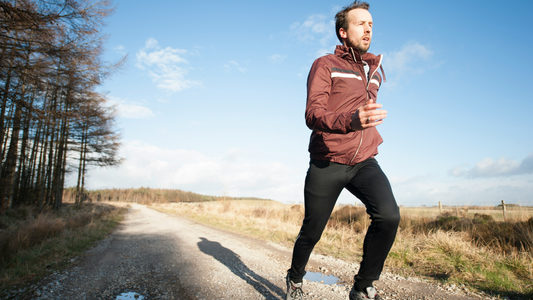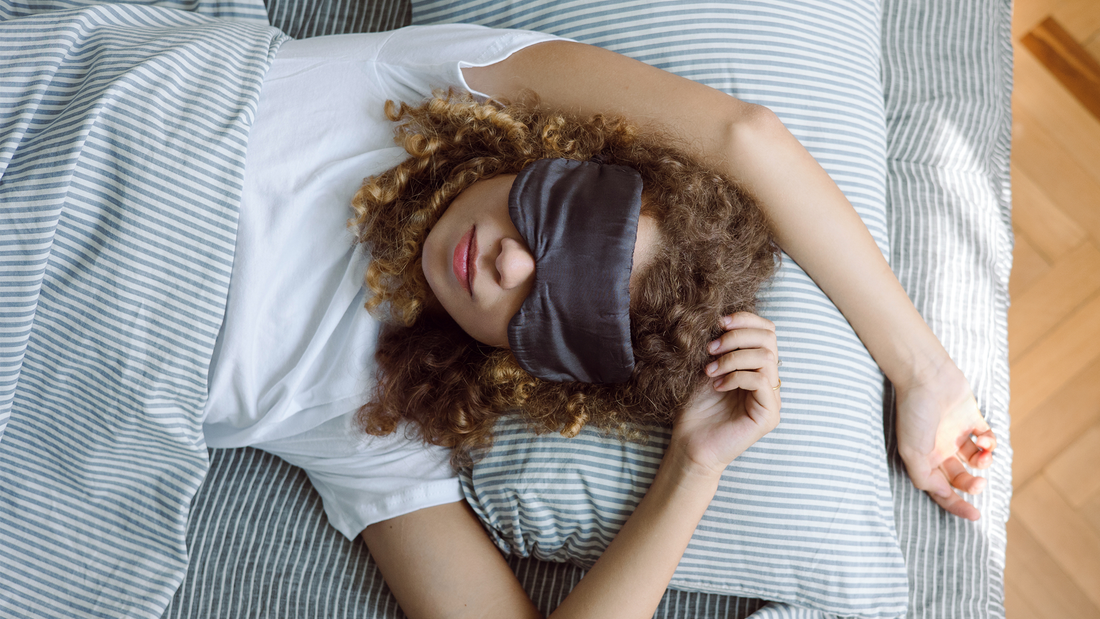
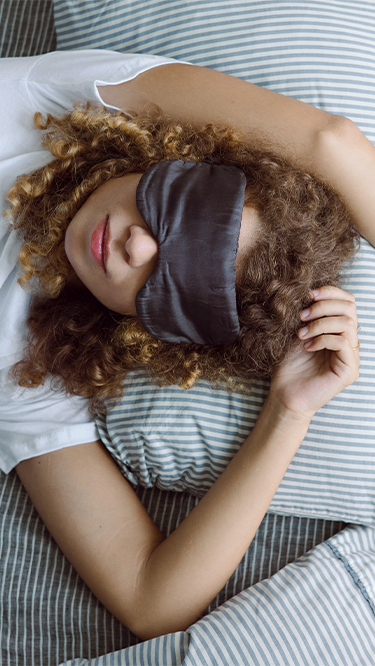
How Much Sleep Do You Need To Build Muscle?
Building muscle calls for a combination of effort and rest. Many fitness enthusiasts know and speak about the importance of rest days. Getting enough sleep every night is also crucial for building muscle. Research shows that insufficient sleep can lead to reductions in muscle mass. How much sleep do you need to build muscle? Find out why getting seven or more hours of sleep every night can help you derive the maximum muscle-building benefits from every workout.
ZOZOFIT is here to break it all down for you.
How Does Sleep Affect Muscle Growth?
The human body repairs itself during sleep. When you do resistance exercises, you create microtears in muscle fibers. During the repair process you build muscle mass. As you sleep, various systems in your body work together to promote muscle growth. Here are a few of the most important sleep and muscle recovery functions:
- Human growth hormone production
- Protein synthesis
- Reduced energy consumption
- Brain cell restoration
Human growth hormone is one of the most important compounds for building muscle. This hormone floods the bloodstream during sleep and helps the body use the amino acids in protein to support muscle recovery and growth. The related process of protein synthesis occurs in the digestive system.
Sleep reduces the energy consumption required to sustain other bodily functions and enables your body to prioritize muscle repair. Sleep also restores brain cells, ensuring you wake up alert and focused enough to maximize the benefits of your fitness routine.
How Much Sleep Do You Need To Build Muscle According To Doctors?
The American Academy of Sleep Medicine recommends that adults get seven hours or more of sleep per night. A 2017 study on the relationship between sleep and muscle strength found that male participants who slept less than six hours per night had less muscle strength than those who slept for seven to eight hours.
A short answer to the question of how many hours of sleep for muscle growth is at least seven hours. Researchers did not observe a significant difference in strength between male participants who slept between seven and eight hours and those who slept for more than eight hours. Although this study did not find the same association between sleep duration and muscle strength in female participants, women should also get at least seven hours of sleep every night.
What Are Some Ways To Maximize Muscle Growth Overnight?
One of the best ways to build muscle while you sleep is to make the most of protein synthesis. If you do not consume protein shortly before sleep, your muscles can enter a catabolic state similar to fasting, which undermines muscle development. Drinking a protein shake or eating protein-rich snack, such as trail mix or Greek yogurt, shortly before bed provides your digestive system with amino acids to support muscle growth.
Another way to build more muscle is to complete as many sleep cycles as you can. Each sleep cycle takes about 90 to 100 minutes and includes four stages of sleep without rapid eye movement followed by REM sleep. Experiencing about five cycles per night provides the most sleep and muscle recovery benefits.
How Does Sleep Affect Your Workouts?
The amount of sleep you get directly affects your energy consumption and metabolic rate. A study published in 2010 found that adults who restricted sleep to 5.5 hours per night over 14 days decreased the percentage of weight lost as fat by 55% even though they consumed the same amount of calories. Taking 3D body scans with ZOZOFIT and tracking your measurements over time can help you determine how many hours of sleep you should get for muscle growth or weight loss every night.
The quality of sleep you get can affect your ability to focus and your reaction times, which are essential for safety while exercising. You are more likely to make smart choices and react faster when you are well-rested. Just as good sleep can improve your workouts, working out can help you sleep better at night.
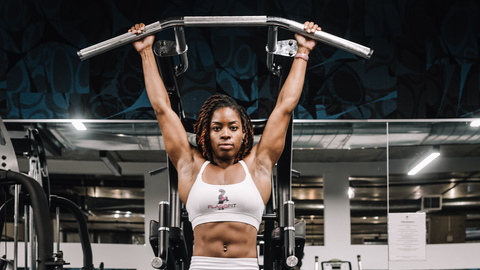
If you're wanting to push yourself at the gym, make sure that you're getting the sleep that you need so that you can maximize your efforts.
How Does Exercise Affect Your Sleep?
Levels of the neurotransmitter adenosine in the brain are a major factor in feeling energetic or tired. Adenosine levels decline during sleep and rise over the day. Exercise raises adenosine levels, which can help you feel tired when it is time to go to bed and sleep more soundly. Adenosine also plays a role in the production of ATP, an energy storage molecule involved in cellular-level biochemical reactions that contributes towards building muscle.
In a study of older adults who reported a typical sleep time of less than 6.5 hours, participants who did moderate-intensity workouts four times a week for six weeks reported an average increase of 75 minutes of sleep per night and better sleep quality, mood and quality of life. Exercising and developing a bedtime routine can help you get all the benefits of restful sleep.
Should You Prioritize Sleep or Exercise?
Your body continues to build muscle on rest days, but getting sufficient quality sleep every night is a critical factor for many fitness and health benefits. If you have a spare hour in the day and your options are to exercise more or sleep more, the director of the Duke University Pediatric Neurology Sleep Medicine Program recommends getting more rest.
It is also worthwhile to consider how the timing of workouts can affect sleep quality. Intense training in the late evening raises your body temperature and releases endorphins, making it harder to sleep. Try to work out no later than four to six hours before bed for more quality sleep and muscle recovery benefits.
Why Should You Schedule Sleep and Workouts?
Making and sticking to a sleep schedule is just as important as planning regular workouts. The short answer to "how much sleep do you need to build muscle?" is seven or more hours. Set a bedtime and follow a pre-bed routine to ensure that you get enough sleep to support your fitness goals. Get the ZOZOFIT app on your phone to track the results of your daily routine with unlimited 3D body scans.

![zf-w-[168px] zf-h-[40px]](http://zozofit.com/cdn/shop/t/15/assets/logo-desktop.png?v=117713855448369080381753069598)


